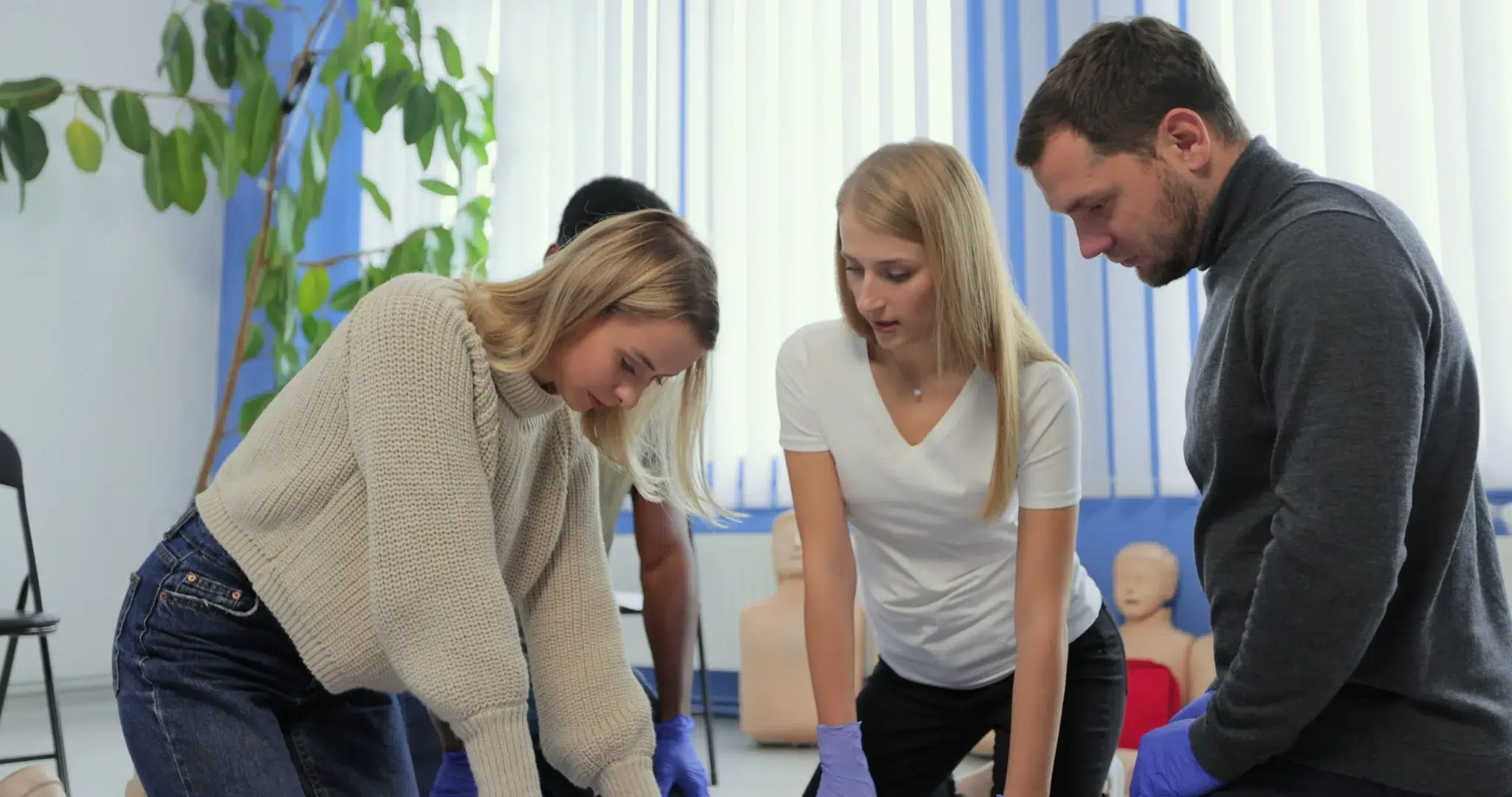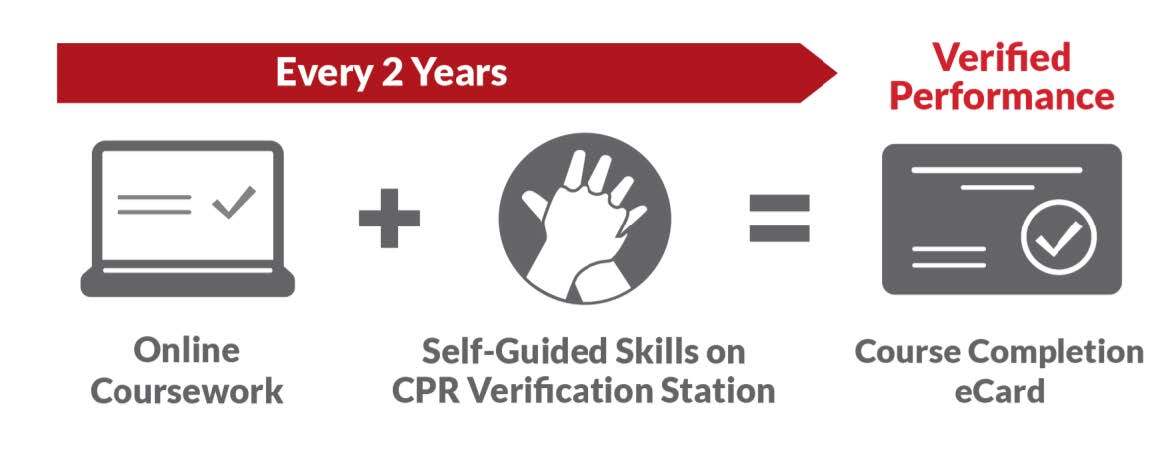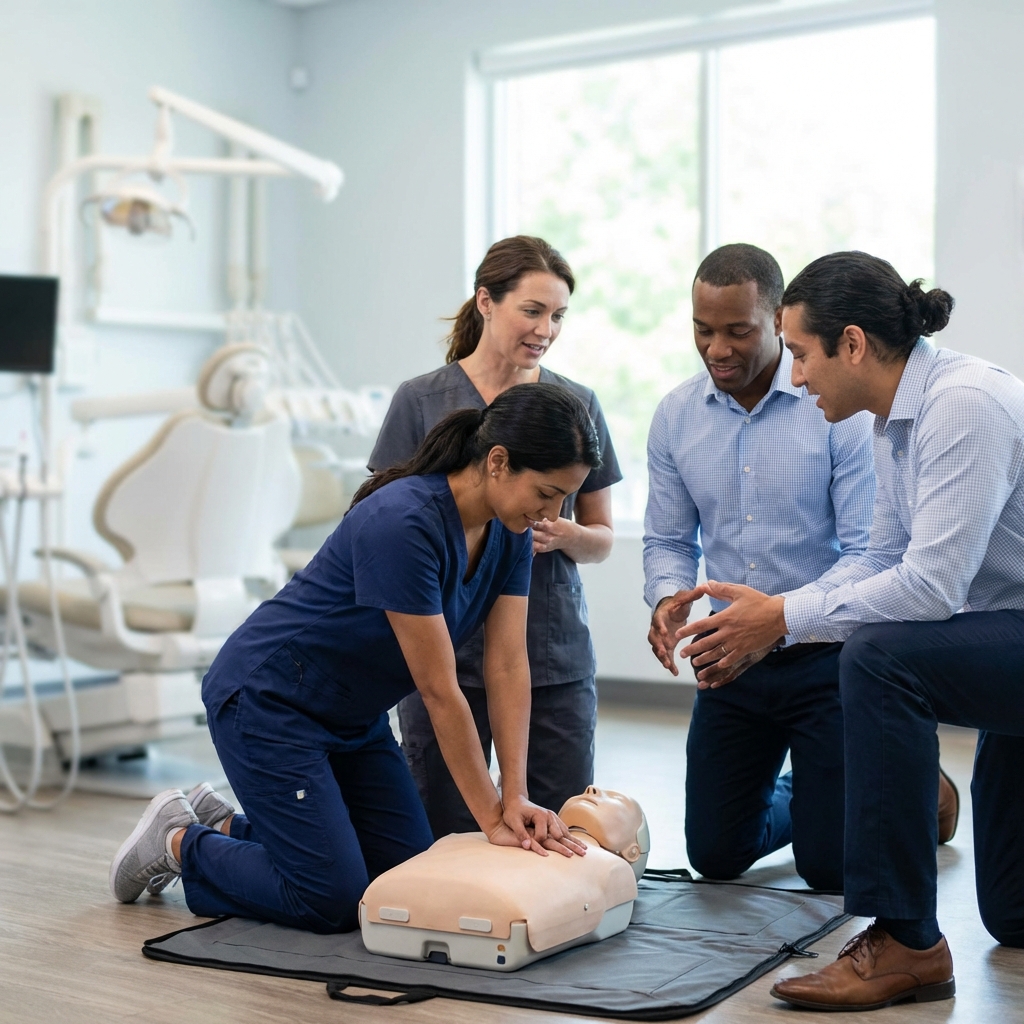As a healthcare provider, your skills and certifications are your lifeline—literally. They’re the tools you rely on to provide the best possible care in critical situations. One of the most fundamental certifications is Basic Life Support (BLS), and keeping it current is non-negotiable. But juggling a demanding career and personal life makes finding the time for BLS renewal a challenge. This guide simplifies the process, covering everything from understanding the importance of BLS renewal to finding the perfect “BLS renewal near me” course that fits your schedule and budget. We’ll explore different learning formats, discuss costs, and help you prepare for a smooth renewal experience.
Key Takeaways
- Prioritize reputable BLS renewal providers: Look for providers accredited by organizations like the American Heart Association, with qualified instructors and convenient locations. Safety Training Seminars offers high-quality training in San Francisco, Daly City, San Mateo, and Oakland.
- Select the best course format for your learning style: Choose from in-person classes for hands-on practice, online courses for flexibility, or hybrid options for a blended approach. Consider your schedule and learning preferences when making your decision.
- Understand renewal costs and timing: Research typical BLS renewal prices and factor in any additional fees. Renew your certification promptly to avoid lapses and maintain your qualifications. Check with Safety Training Seminars for their low price guarantee and explore potential discounts.
What is BLS Renewal?
What is BLS & Why Renew?
Basic Life Support (BLS) is a critical certification for healthcare providers, equipping them with the skills to respond to life-threatening emergencies. It covers essential techniques like CPR and includes advanced procedures for managing cardiac arrest, respiratory distress, and airway obstructions. Think of it as a step up from standard CPR training, providing a more comprehensive skillset for professionals like doctors, nurses, EMTs, and other first responders. Keeping your BLS certification current is essential for ensuring patient safety and often a job requirement. It demonstrates your commitment to maintaining the highest standards of care.
Common BLS Renewal Misconceptions
One common misconception about BLS renewal is the cost. Many assume it’s always cheaper than the initial certification, but several factors influence the final price. For example, opting for an online renewal course might seem more affordable, but if your certification has lapsed, you might need to retake the full BLS course. Another misconception revolves around renewal deadlines. While some believe renewal is only possible right before expiration, there’s often a grace period. You can usually renew your BLS certification up to 30 days after it expires, and some providers offer renewal courses up to 60 days after. Understanding these details can save you time and money.
Find the Best Local BLS Renewal Providers
Finding the right BLS renewal provider can feel overwhelming, but focusing on a few key factors simplifies the process. Prioritizing a provider’s reputation, instructor qualifications, and convenient scheduling options ensures you receive high-quality training that fits your needs.
Evaluate Provider Reputation & Accreditation
Start your search by looking for providers accredited by reputable organizations like the American Heart Association (AHA) or the American Red Cross. These organizations uphold specific standards for BLS training, ensuring your certification meets nationally recognized guidelines. Choosing an accredited provider, especially one following evidence-based guidelines like those emphasized by the World Health Organization for healthcare providers, gives you confidence in the quality and relevance of the training. Reading online reviews and testimonials offers valuable insights into past students’ experiences.
Check Instructor Qualifications & Course Quality
Qualified instructors are just as important as the provider’s reputation. Instructors should maintain current BLS certification for healthcare providers and regularly update their knowledge through refresher courses, as highlighted by Red Cross guidelines. This ensures they teach the most up-to-date techniques and best practices. Look for providers who emphasize hands-on training and offer opportunities to practice skills in realistic scenarios. A high-quality course provides ample time for practice and personalized feedback, allowing you to build confidence in your abilities.
Convenient Locations & Scheduling
While quality is paramount, convenience matters too. Consider providers with locations easily accessible to you, whether near your workplace or home. Flexible scheduling options, including weekend and evening classes, make fitting the renewal into your busy schedule much easier. The Red Cross, for example, emphasizes convenient scheduling to make maintaining your certification straightforward. Look for providers who share a similar commitment to accessibility and offer various scheduling options to accommodate different needs.
Choose Your BLS Renewal Course Format
Deciding on the right BLS renewal course format depends on your learning style, schedule, and preferences. Let’s explore the pros and cons of each option to help you make the best choice.
In-Person Classes: Hands-On Practice
In-person BLS renewal courses offer the invaluable benefit of hands-on practice. This is essential for developing the muscle memory and confidence needed to perform CPR and other life-saving techniques effectively. You’ll receive real-time feedback from certified instructors, ensuring you’re using the correct techniques. These courses typically include a written exam and skills evaluation, providing a comprehensive assessment of your abilities. This format is especially beneficial for healthcare providers who need to demonstrate proficiency in a controlled environment. If you thrive in a structured, interactive learning setting, an in-person class might be your best bet.
Online Courses: Flexibility & Convenience
Online BLS renewal courses offer unparalleled flexibility and convenience. They’re perfect for those with busy schedules or limited access to in-person training centers. The American Heart Association notes that online renewal courses provide a comprehensive review for healthcare professionals with prior CPR training. You can learn at your own pace, revisiting material as needed, and fit the training around your other commitments. This format often involves interactive modules, videos, and self-assessments to reinforce learning. If you prefer self-directed learning and need a flexible option, an online course could be a great fit.
Hybrid Options: Combining Online & In-Person
Hybrid BLS renewal courses combine the best of both worlds. You’ll complete the cognitive portion of the course online, learning the theory and protocols at your own pace. Then, you’ll attend a shorter, in-person skills session to practice and demonstrate your proficiency under the guidance of a certified instructor. This blended learning approach caters to various learning styles and schedules, offering a comprehensive yet adaptable training experience. If you appreciate the flexibility of online learning but also value hands-on practice, a hybrid course might be the ideal solution.
What Does BLS Renewal Cost?
Knowing the typical BLS renewal costs helps you budget and find the best value. Let’s break down the factors influencing pricing.
Average BLS Renewal Course Pricing
BLS renewal course fees vary based on location, course format (online or in-person), and the training provider. Expect to find BLS renewal courses ranging from $70 to $120. For example, providers like Berkeley CPR Classes offer a BLS course for around $120, which includes online coursework, the skills test, and your certification card. In-person courses sometimes cost slightly more due to facility and equipment expenses. Always confirm pricing with your chosen provider before registering. Safety Training Seminars offers a low price guarantee for competitive pricing.
Additional Fees & Materials
While the advertised course fee often covers the core instruction and certification card, be aware of potential extra costs. Some providers might charge separately for course materials, like manuals or pocket masks. If your BLS certification has lapsed, you might need to take a full BLS course instead of a renewal course, potentially incurring a higher fee. Clarify any additional fees upfront with the provider to avoid surprises.
Discounts, Promotions, & Group Rates
Many training centers offer discounts for groups, students, or returning customers. Look for promotional discounts, but don’t compromise on the quality of the training. Check if your employer offers reimbursement for BLS renewal or consider splitting the cost with colleagues if you register together. Contact Safety Training Seminars directly to inquire about current discounts and group rates for your team.
BLS Renewal Prerequisites & Requirements
Getting ready for your BLS renewal? Here’s what you need to know before signing up for a class.
Current Certification & Expiration
BLS certification is valid for two years. Knowing your expiration date is crucial. Renewal courses are available within 30 days of expiration. Don’t wait until the last minute—give yourself time to find a class and renew before your card expires. The Red Cross offers helpful information on BLS renewal and recertification.
Renewal Time Frame & Avoiding Gaps
Renew your BLS certification before it expires, if possible. The American Heart Association (AHA) allows renewal up to 30 days after the expiration date. Some training centers may accept students up to 60 days after expiration, but confirming their policies is always best. Save A Life CPR offers advice on renewing your AHA BLS certification and avoiding gaps in your credentials. A lapse in certification could affect your job or your ability to respond to emergencies, so staying current is essential.
Skills Testing & Course Completion
BLS renewal courses typically involve a skills test and a written exam. The skills test ensures you can correctly perform CPR and other life-saving techniques. The written exam assesses your knowledge of BLS principles and protocols. Many providers offer online review courses if you need a refresher before your skills check. Sav-A-Heart has a BLS renewal course for healthcare providers, including a written exam and skills evaluation. ACLS Medical Training also provides a BLS renewal course with online modules and a certification exam. These resources can help you review key concepts and prepare for a successful renewal.
Make the Most of Your BLS Renewal
Your BLS renewal is more than just a checkbox—it’s a chance to refresh life-saving skills and stay at the top of your game. Here’s how to make the most of it:
Prepare for Your Course: Review & Practice
Before your BLS renewal course, take some time to review the material. Even if you regularly use your skills, a quick refresher can boost your confidence. Many providers, like Safety Training Seminars, offer online resources or practice tests. Consider an online BLS renewal course designed for healthcare providers with prior CPR training. These courses often include a written exam and skills evaluation, providing a comprehensive review and hands-on practice. Practicing key skills like CPR, AED use, and airway management beforehand can make a real difference in your comfort level and overall competence.
Stay Updated on the Latest Guidelines
Staying current with the latest BLS guidelines is crucial for providing effective care. Guidelines evolve based on the latest research and best practices, directly impacting patient outcomes. Organizations like the American Heart Association and the Red Cross regularly update their materials. Reviewing them before your renewal ensures you’re using the most effective techniques and reinforces your commitment to providing high-quality care.
Top Local BLS Renewal Providers
Finding the right BLS renewal provider can feel overwhelming, but focusing on a few key factors can simplify your search. Look for providers with a solid reputation, up-to-date training materials, and convenient class schedules. Here are a few options to explore:
Safety Training Seminars
Safety Training Seminars offers BLS recertification coursework designed for healthcare professionals. Their comprehensive training covers how to respond to various medical emergencies, both individually and as part of a team. They focus on practical skills and real-world scenarios, ensuring you’re prepared for anything. Check their website for course schedules and locations in San Francisco, Daly City, San Mateo, and Oakland, CA. They also offer a low price guarantee.
American Red Cross
The American Red Cross has been a trusted name in first aid and CPR training for over a century. They offer BLS recertification classes both online and in person, providing flexibility to fit your schedule. Their established curriculum and widespread availability make them a convenient choice.
American Heart Association Training Centers
The American Heart Association (AHA) provides several ways to renew your BLS certification, including online courses and traditional in-person classes. This allows you to choose the learning environment that best suits your needs. AHA-certified training centers are located throughout the country, making it easy to find a class near you. Safety Training Seminars offers several AHA-certified courses, including ACLS and PALS.
Local Hospitals & Medical Centers
Many local hospitals and medical centers offer BLS renewal courses, often focusing on the specific needs of healthcare providers within their system. Exploring options at a local training center or online can help you find the best fit for your requirements. For those seeking more specialized training, consider Safety Training Seminars’ RQI program, specifically designed for healthcare professionals.
Community Colleges & Universities
Community colleges and universities frequently offer BLS renewal courses as part of their continuing education programs. These courses can be a cost-effective option, and it’s worth checking for any promotional discounts. Just be sure the training quality aligns with your professional needs and that the program offers current, evidence-based information. If you’re looking for daily classes and flexible scheduling, Safety Training Seminars offers various options to accommodate busy professionals.
For those searching for convenient renewal options, BLS CPR Classes in Manteca provide a reliable solution with certified instructors and up-to-date materials. Meanwhile, BLS CPR Classes in Morgan Hill offer the same high-quality instruction in a setting tailored for South Bay professionals.
Related Articles
- BLS Renewal in SF: Your Complete Guide – San Francisco CPR Classes
- BLS Courses in San Francisco: The Complete Guide – San Francisco CPR Classes
- BLS for Healthcare Providers in SF: A Practical Guide – San Francisco CPR Classes
- HeartCode BLS in SF: Your Complete Guide – San Francisco CPR Classes
- BLS Certification in San Francisco: Your Guide – San Francisco CPR Classes
Frequently Asked Questions
How often do I need to renew my BLS certification? BLS certification is typically valid for two years. It’s essential to renew before your certification expires to maintain your credentials and ensure you’re up-to-date on the latest guidelines.
What’s the difference between BLS renewal and recertification? BLS renewal is for those whose certification is still current or within the grace period (usually 30 days after expiration). Recertification is required if your certification has fully lapsed. A renewal course is typically shorter and focuses on refreshing existing skills, while recertification involves completing the entire BLS course again.
Can I renew my BLS certification online? Yes, online BLS renewal courses are available, offering flexibility and convenience. However, they often require an in-person skills assessment component to demonstrate proficiency in practical techniques. Make sure the online course you choose meets the requirements of your certifying body and employer.
What if my BLS certification has already expired? If your BLS certification has expired, you might still be eligible for a renewal course if it’s within the grace period allowed by your certifying organization (often 30 days). However, if it’s been longer, you’ll likely need to retake the full BLS certification course.
How can I find BLS renewal courses near me? Several resources can help you find local BLS renewal courses. Check with your employer, local hospitals, community colleges, or established providers like the American Red Cross and the American Heart Association. Online search engines and training directories can also help you locate certified instructors and training centers in your area. Safety Training Seminars offers courses in San Francisco and surrounding areas. Check their website for schedules and locations.









